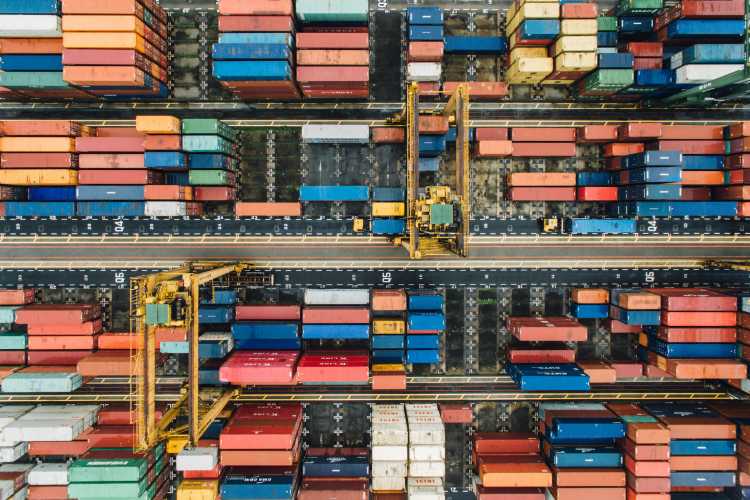
Trump 2.0 impact on global trade: Donald Trump’s impending return to the White House heralds a turbulent era for the global economy. Trump’s trade philosophy, based on reciprocity, is already sending ripples across global markets. His administration’s emphasis on levelling trade imbalances, exemplified by criticisms of India’s tariff policies, signals a renewed push for aggressive trade negotiations. Trump’s rhetoric, mirrored by his commerce secretary pick Howard Lutnick, sets the stage for a policy environment where tariffs and trade barriers could redefine international economic relations. Policymakers globally, including in New Delhi, are bracing for a wave of reciprocal measures that could reshape existing trade dynamics.
Donald Trump’s first presidency was marked by erratic yet decisive actions that redefined global trade, security, and economic policies. Key initiatives, such as the imposition of tariffs on Chinese goods and withdrawal from key treaties, highlighted his transactional approach to policymaking. By prioritising American interests, Trump disrupted global supply chains and reshaped economic alliances. His National Security Strategy of 2017 identified China and Russia as primary threats to American hegemony, leading to policies that curtailed technological exchanges and imposed tariffs on key imports.
READ | Trump 2.0: Implications for India’s climate and energy policy
Trump’s decisions, often unpredictable, highlighted his instinct-driven leadership style. While this approach yielded strategic wins — such as recalibrating trade with China and pushing NATO members toward higher defence spending — it also created economic volatility, leaving markets and allies uncertain about the future.
Reciprocal tariffs: A challenge for India
Trump’s criticism of India’s high tariffs on American goods, including iconic products like Harley-Davidson motorcycles, reveals a brewing challenge. His administration’s focus on reciprocity could pressure India to reduce tariffs on agricultural products and industrial goods, areas of strategic importance for domestic industries. For example, Trump’s remarks on bicycles — highlighting imbalances in tariffs — illustrate his intent to pursue aggressive trade corrections. India’s policymakers must prepare robust strategies to address these demands while safeguarding domestic economic interests.
Experts warn that reciprocal tariffs could disrupt India’s exports, particularly in sectors already burdened by high US duties. Moreover, Trump’s stance could reopen debates on sensitive issues like market access for American agricultural products, further complicating trade negotiations.
Opportunities and risks in supply chains
Trump’s America First agenda has historically spurred shifts in global supply chains. While countries like Vietnam and Indonesia capitalised on supply chain realignments away from China, India’s progress in this domain remained limited due to infrastructure and policy bottlenecks. Trump 2.0 offers India another chance to attract global investments, particularly as companies diversify operations from China. However, this requires significant improvements in ease of doing business and infrastructure development.
India’s burgeoning role as a hub for global capability centres (GCCs) reflects its potential in the global value chain. With over 1,700 GCCs already established, India is emerging as a critical player in technology and service exports. Leveraging this momentum during Trump’s presidency could enhance India’s economic positioning.
Trump’s presidency could influence global energy markets significantly. His potential disengagement from international conflicts and focus on domestic priorities might lead to lower oil prices. A drop in oil prices would benefit India, reducing inflationary pressures and improving fiscal health. However, uncertainties around Trump’s handling of the Russia-Ukraine war and Middle East tensions could destabilise energy markets, posing risks to import-dependent economies like India.
US-China rivalry and emerging economies
The escalating US-China rivalry under Trump’s leadership is likely to intensify, impacting global trade and investment flows. While this creates challenges for countries entangled in US-China supply chains, it also offers opportunities for nations like India to position themselves as alternative manufacturing hubs. However, India must leverage this rivalry to ensure that its strategic partnerships with both powers remain intact.
Donald Trump’s return to power brings both opportunities and challenges for the global economy. For India, his presidency presents a double-edged sword: the possibility of enhanced bilateral ties and economic gains tempered by the threat of trade tensions and reciprocal tariffs. As the world braces for another round of Trumpian policies, adaptability and strategic foresight will be crucial for nations navigating this unpredictable landscape.
India’s ability to leverage its strengths — from its diverse economy to its growing role in global supply chains — while addressing systemic weaknesses will determine its success in this new era. As Trump’s presidency reshapes global economic norms, India must position itself not just as a reactive player but as a proactive leader in shaping the future of international trade and cooperation.
